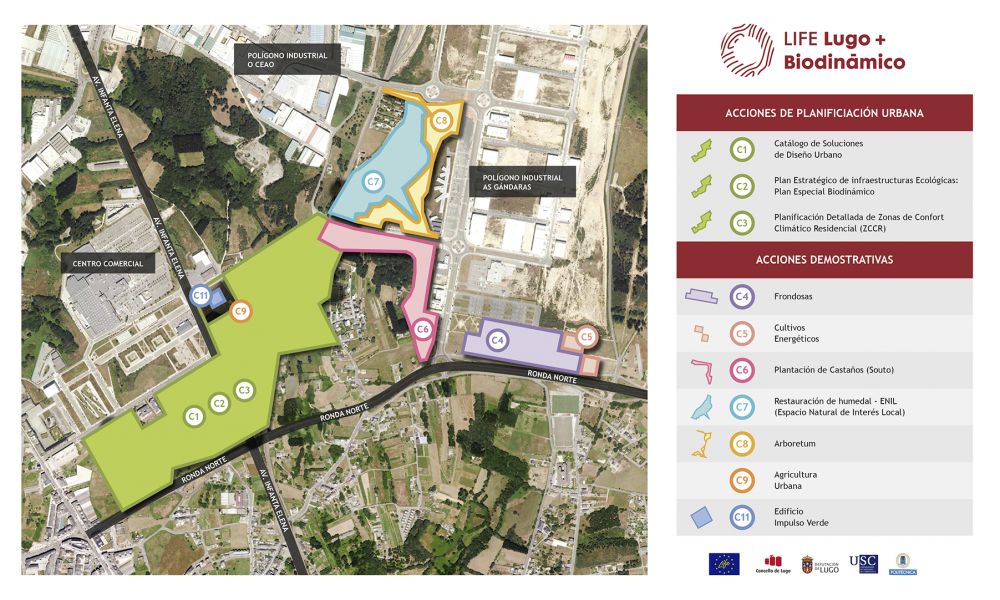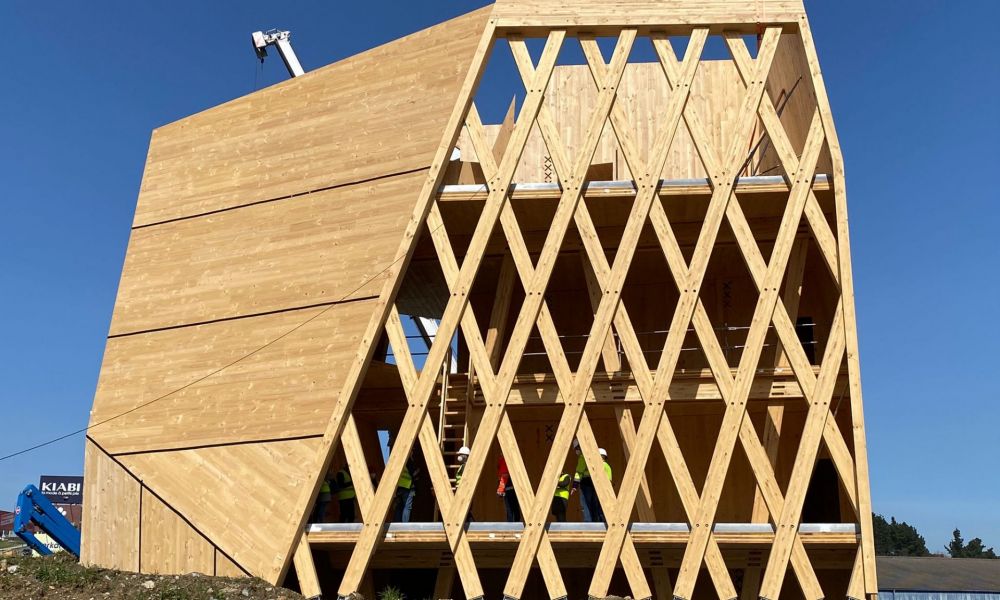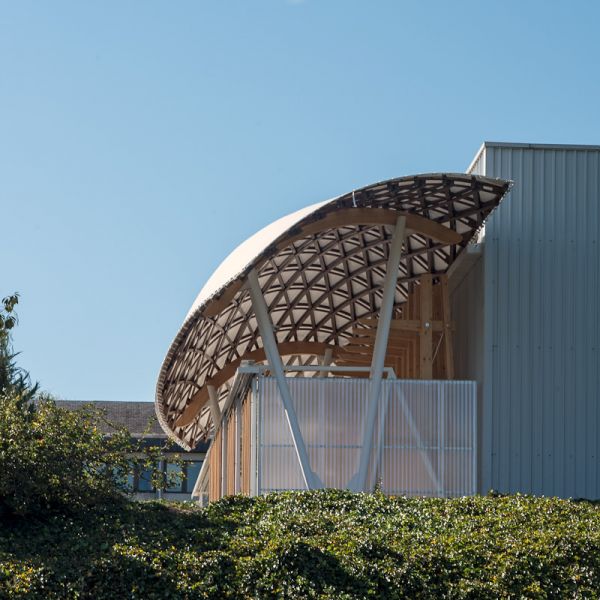With the tender approved and a budget of one million euros, Impulso Verde is “an example of the struggle to reduce the impacts of CO2 emissions by emitting 90% less than concrete and steel buildings (50 tons versus 470), also absorbing 280 tons of emissions. Important figures, if one takes into account that the objective of the climate emergency is to reduce carbon emissions by 7.6% each year and reach zero emissions in 2050″, according to the mayor of Lugo, Lara Méndez.
It is an example of high-tech construction of structural wood in height, the first with Galician wood and four floors and that will open a new economic horizon for the Galician forester.
The building
Last August the tender for the building work was approved, which has a budget of € 1,040,503 and a 15-month execution period. Impulso Verde will have municipal and collective uses and will be a building with almost zero energy and a respectful construction model with no environmental footprint, exportable to any other city in Spain and Europe.
This pioneering building has been conceived with the purpose of becoming a benchmark of the new construction model based on local natural resources, since it uses local wood for its entire structure, creating an alternative construction model to conventional buildings with low energy efficiency.
The objective of this construction model is to minimize the environmental impact, improve the quality of life, boost the Galician forestry sector and initiate a new high-tech production model, which will allow to develop the added value of wood and other autochthonous crops. Galician species wood from sustainable forest management will be used for its construction.













